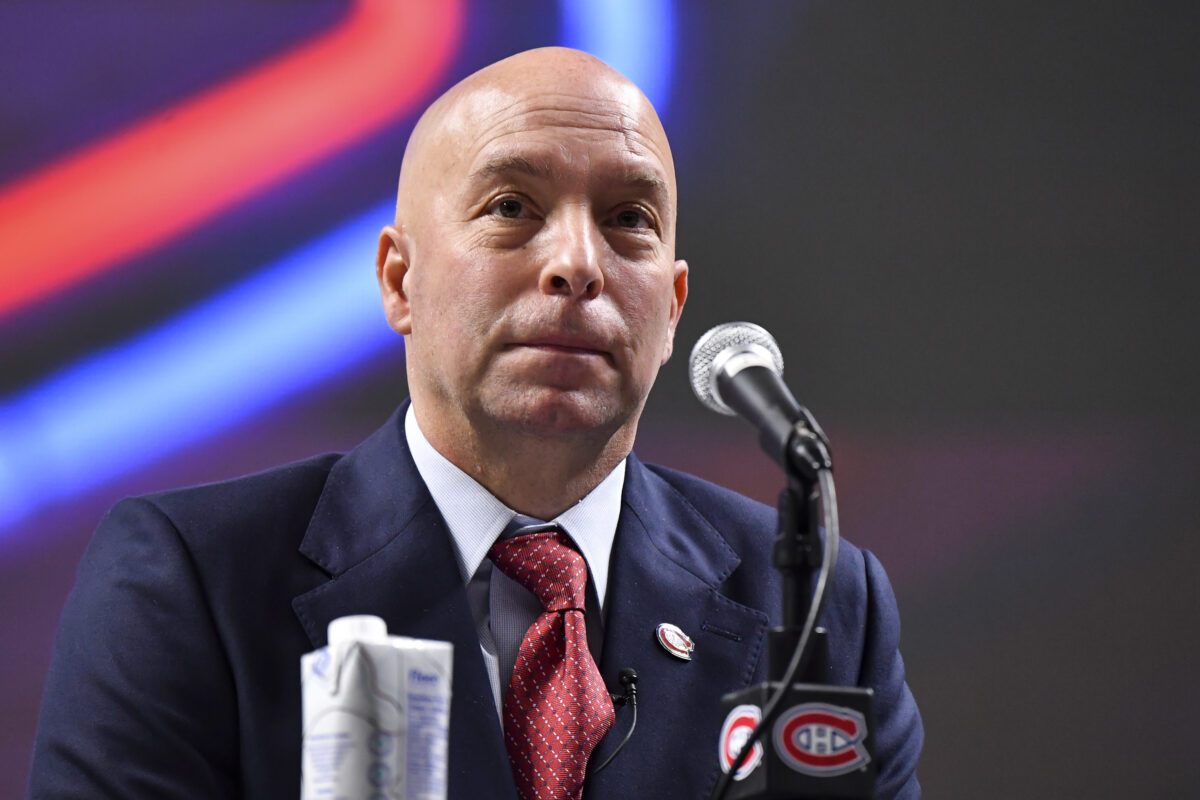In hockey, it is almost cliche to hear teams talk about culture. The culture “in the room,” is also about “building a winning culture.” Yet it is a process shrouded in mystique. While it is vital as a basis for any winning team and therefore is something every team strives to build, it isn’t always achievable.
So, just how can a team go about building one? What do teams needs in place for it to blossom? More importantly for this discussion, do the Canadiens have the right foundation for one to bloom?
Building a Top Culture
Building that culture takes vision and leadership, and that begins at the management level. General manager (GM) Kent Hughes is the source of the vision, while he may collaborate with team owner Geoff Molson and executive vice-president Jeff Gorton, Hughes is the one that must implement any plan. The culture, style, and how it is built come from his leadership.
What makes the work of management challenging is the world they work in is far more complex than what players and coaches deal with. Hughes has broader responsibilities with longer time horizons, what is also called the “big picture.” They also have to manage numerous departments, such as Analytics, Development, Training, and more. Sometimes these departments have competing interests or points of view and require a dedication to applying a 360-degree influence on the organization.

It’s about culture, foundationally; it’s how people work together. It’s how the values and beliefs that they share bring them together. It is also how they respect, support, and collaborate toward common goals. No team culture can begin without input from all levels, from owner to training staff to players. Defining more clearly to themselves what they stand for and what they hope to achieve is crucial to the basis of any team culture. That begins with the values they hope to instill above any skill set that brought them to the NHL. Values such as dedication, character, loyalty, communication, and will all become important in building a winning culture. A side bonus to any healthy working environment and winning culture is a desire for those outside the organization to join in, making the Canadiens a more inviting locale for unrestricted free agents.
Canadiens’ Bench Boss
With the hiring of head coach Martin St. Louis, Hughes added a coach that understands what it takes to build a winning culture, having won a Cup with the Tampa Bay Lightning and had his own Hockey Hall of Fame playing career. Essentially, in sports, ensuring players are having fun while putting the team first in every situation will be his concern. Communication will be the key skill in this aspect of leadership.
St. Louis will do this by knowing his people. First, he will focus on their on-ice abilities and limits using scouting, testing, and analytics.
Secondly, he will get to know them on a personal level. By doing so, he can tailor his approach and communicate more effectively. Part of that communication is showing compromise, allowing players to perform the skills that got them to the NHL, but asking them to be flexible in their approach to the game by also buying into the team concept for the greater good.
“As a coach, when you have an offensive player like Caufield, they need to meet you halfway. If your coach gives you some leeway, you have to give him something in return. In Cole’s case, I ask him to be responsible defensively. I love offensive hockey, but sometimes the play dictates your action, and if there’s no scoring opportunity, you must take care of the team.”
–Martin St. Louis
Doing so builds trust, and having the trust of the players will only build upon the team culture by providing that sense of belonging and understanding. That’s an area that St. Louis should have covered as he can relate to each player’s situation. St. Louis has been the undrafted player invited to camp, the player that was sent to the minors, the fourth liner, a third liner, eventually a top-line player, a league MVP, a leader, and a captain. When it comes to the lived experiences of all of the Canadiens skaters in hockey, he has been there and done that.
Canadiens’ On-Ice Leadership
The naming of Nick Suzuki as team captain will be pivotal going forward. At only 23 years of age and under contract for eight more seasons, he should be able to provide continuity over the rebuilding process and into the future.
Related: Canadiens Newest Captain Ready to Face Challenges
A captain this young, despite the experience he has already gained being the team’s top center and playing that role on a team that went to a Stanley Cup Final, can’t know or do it all and will need the support of veterans. Veterans such as Brendan Gallagher and Joel Edmundson, who have been around the NHL, have seen what is needed to win a Cup and to navigate the media market in Montreal. Suzuki must rely on those who have been there and learn from the experience of others both on and off the ice.

While the team’s players develop their skills, veteran leaders and coaches can help mentor the youth along the way, allowing them the comfort to play to their strengths, and to realize they don’t need to do everything themselves, as Juraj Slafkovsky was doing at the Rookie Tournament. Part of that comfort comes with feeling included, and it’s small gestures that can have a big impact, like a veteran giving a rookie the number they prefer.
“First and foremost, we’re trying to create an environment and a culture where he feels welcome with the team. He’s a young guy, and I wanted to make sure that he knows that we’re excited to have him and we’re going to make it a place where he can reach his potential and become a really good player in this League.”
– Chris Wideman
Off the ice, he will be looked upon to assist his teammates, but also to inform the coaching staff of any issues that affect the end goal and performance on the ice. For instance, a player whose wife is pregnant, a child is ill or they’re going through a divorce — being only 23 years old, Suzuki hasn’t lived these experiences, but this will be where the veteran leaders can advise or even assist him on how to approach the issue.
Being an established and historical franchise is no longer guaranteed to provide success. With today’s youth culture, expectations have changed. A “winning culture” is a moving target and is moved with every new person added to the organization. By Hughes asking for everyone to be proficient in their roles and accountable, it creates an atmosphere that allows for the coaching staff to make timely and sound decisions.
For the players, training as a team, and applying their skills towards a well-defined goal, such as winning an overtime game, or making the playoffs, build up feelings of belonging, which adds to the team culture. It adds a sense of responsibility not just for the task at hand, but also for others working with them towards that goal. That sense of belonging applies to all — players, coaches, and management. Once that is achieved, the team can finally have that winning culture in place and be in a position to succeed.
